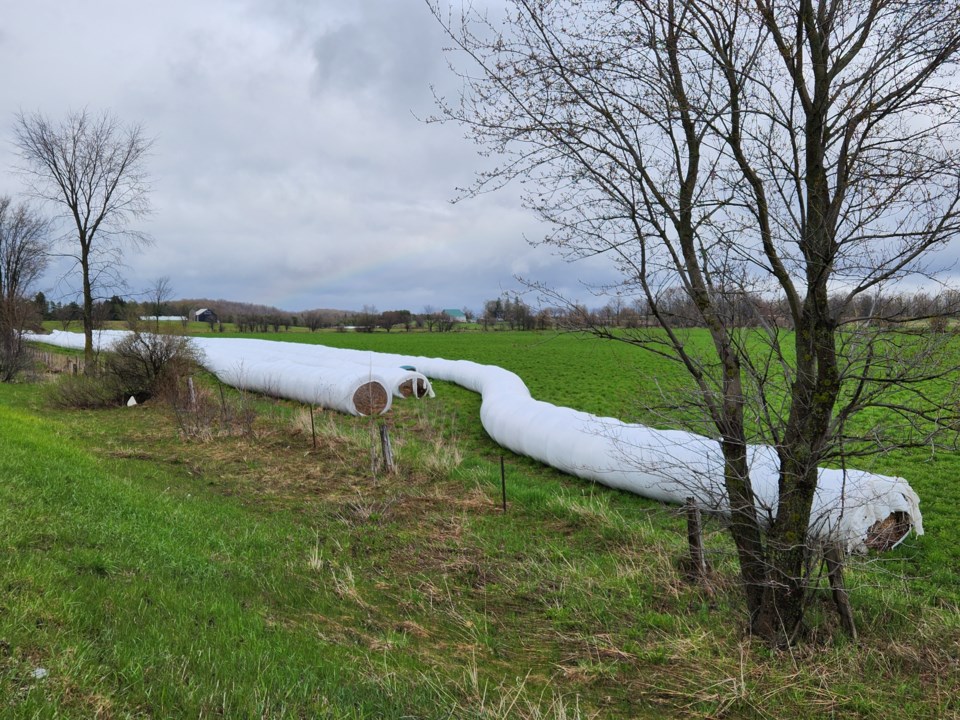Proposed new provincial planning policies that would allow severances on lands designated for agriculture caused divisions at Grey Highlands council.
At its meeting on May 3, council received a full update from Manager of Planning Matt Rapke on a variety of planning issues facing the municipality. The most contentious of these issues was proposed changes to provincial planning policies that would, if implemented, permit two severances on properties designated agricultural.
For close to 30 years, severances in agricultural zones have not been allowed. The only lot creation in agricultural zones have been for the severing of a surplus residential building in the case of a farmer owning two or more farms. In addition, a larger farm property of 200 acres could be severed into two 100-acre parcels.
The province is proposing the changes in an effort to get more homes built in Ontario. The proposed changes dominated the council agenda for more than an hour and opinions on the matter were split. Some members of council expressed concerns that the proposed policy changes could radically alter the rural landscape in their municipality. While others said it was time for the province to look at policies that would help make the family farm more financially viable.
“It would deteriorate efforts in place for decades to protect farmlands and the rural areas of Ontario,” said Deputy Mayor Dane Nielsen. “This could affect our ability to guide and direct growth within municipal boundaries.”
Mayor Paul McQueen disagreed.
“We need to make it feasible for a farmer to make a living without an offsite income,” said McQueen. “I’ve lived this. I’ve been a farmer all my life.”
McQueen said he has always had an off-farm income to support his farming activities and argued that it was time for planning policies that allowed farming to be more financially viable, while still protecting agricultural landscapes.
“We have to have a bigger conversation here. There are many variables that can be in play,” McQueen said, adding that current policies were pushing families off farms and creating “corporate farms.”
“Is that what we want? A community with nobody living in it?” McQueen asked.
Other members of council shared Nielsen’s point of view.
“It is unfortunate how the provincial government is pushing down new rules on us in a very quick manner,” said Coun. Nadia Dubyk. “It will change how our rural area looks.”
Coun. Joel Loughead said he heard throughout the recent election that farmland must be protected.
“Farmland must remain farmland. I heard that over and over,” said Loughead. “This is front of mind for a lot of residents here in Grey Highlands.”
Coun. Dan Wickens expressed a different viewpoint.
“I’m going to play devil’s advocate. Change is inevitable. How much government intervention do you want in your life?” Wickens said.
Coun. Tom Allwood said he was worried about the speed at which the province was proposing changes.
“It’s unbelievable the kind of changes they’re talking about at the provincial level. I’m very concerned about the lack of control,” said Allwood. “There are huge concerns about this.”
Coun. Paul Allen, who chaired the planning portion of the meeting, noted that the discussion had lasted over an hour and that council had differing views on the proposed changes. He said it would be difficult for the municipality’s comprehensive position on the proposed changes to emerge.
“We could discuss this all afternoon,” said Allen. “We’re obviously not on the same page.”
The staff report suggested that Grey Highlands work with Grey County in unison to submit comments to the province on the proposed changes. However, council rejected that suggestion and instead asked that staff prepare a letter from the municipality to the province voicing concerns regarding how the province is bringing forward such significant proposed changes and the lack of time for municipalities to comment.
At the conclusion of the discussion, McQueen said the province should give municipalities a choice with regard to the changes.
“One size in the province of Ontario does not fit all. We should have the ability to decide if we want it. Give us that option, give us the ability to decide,” he said.



